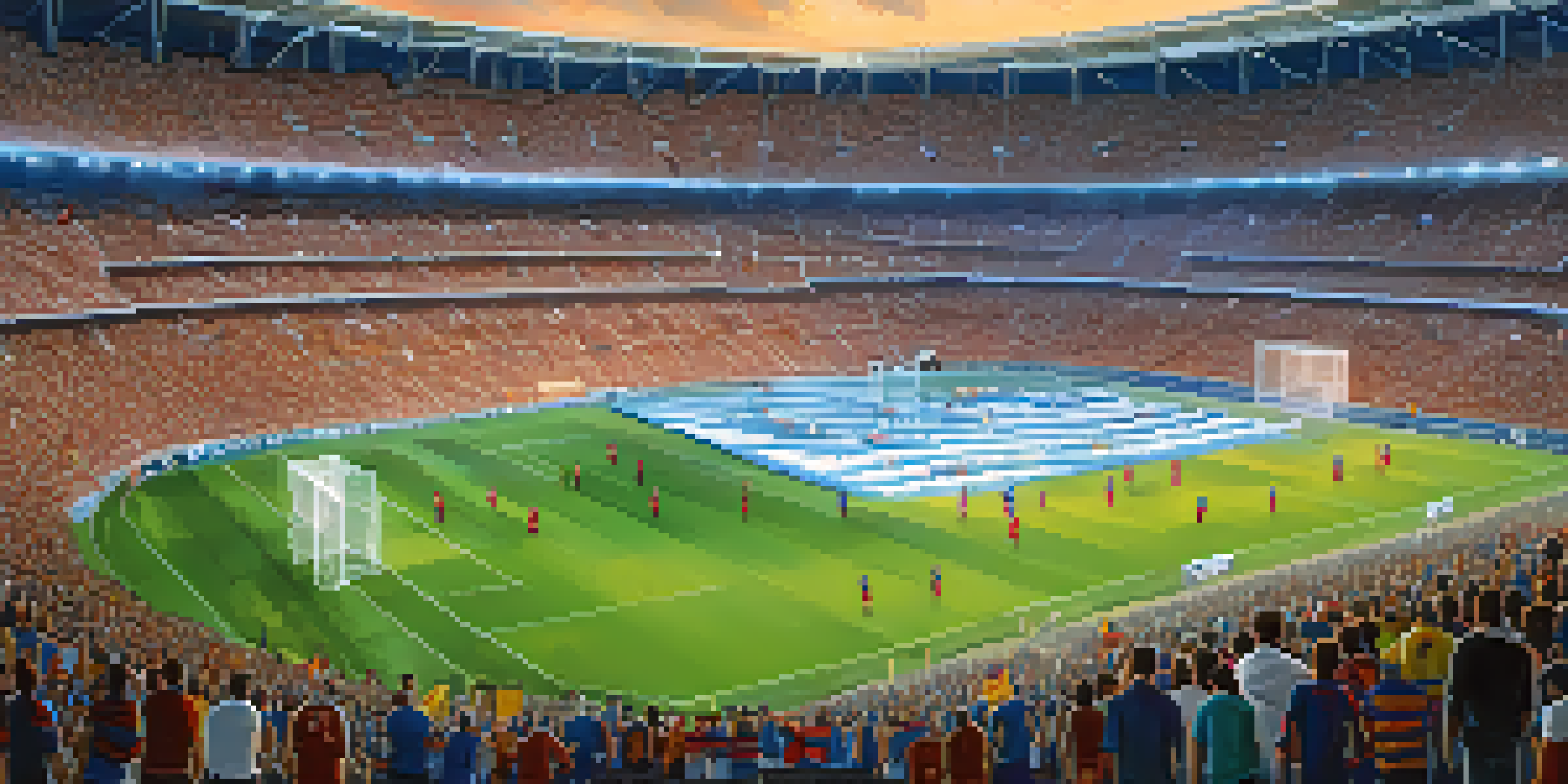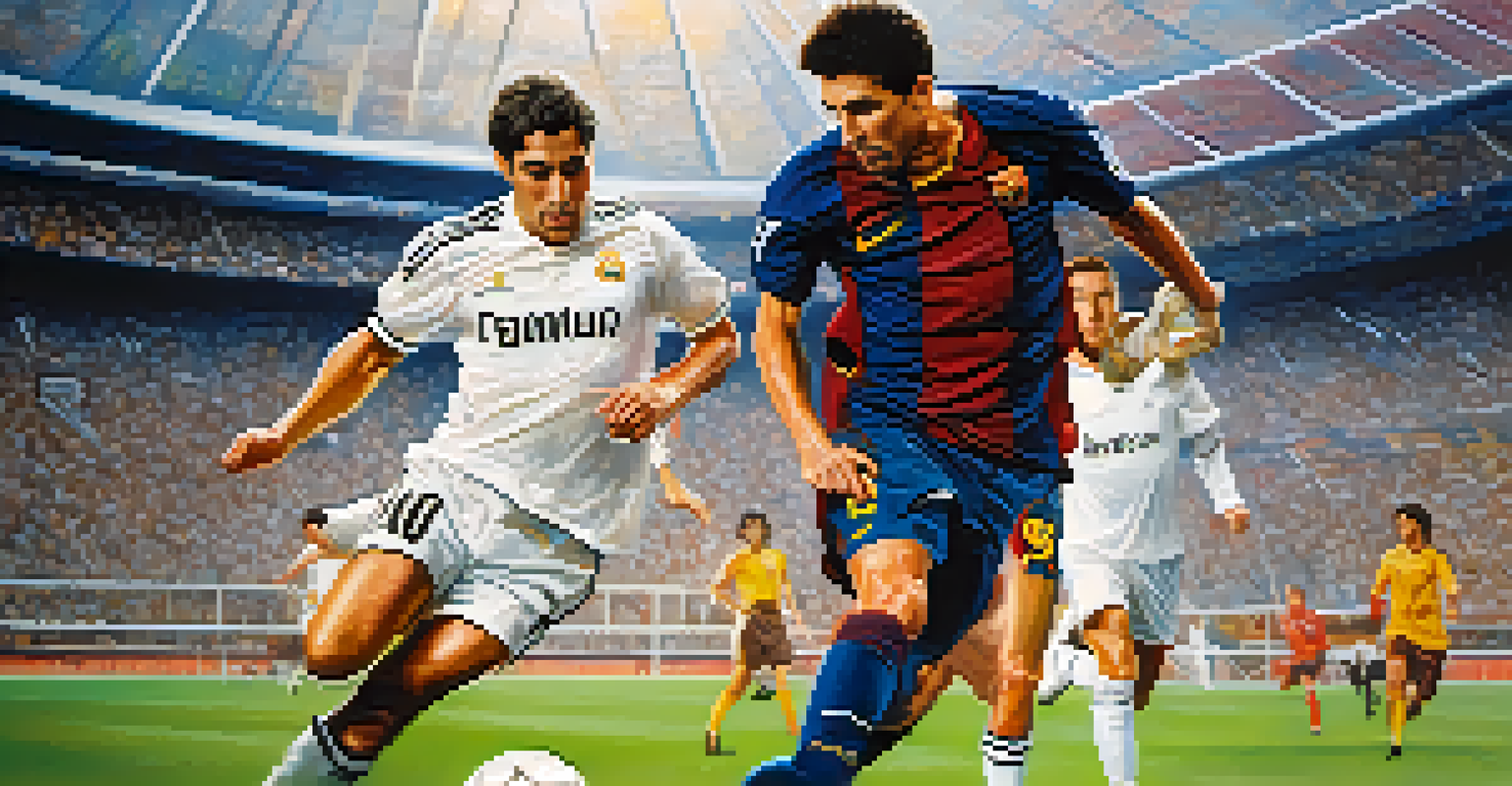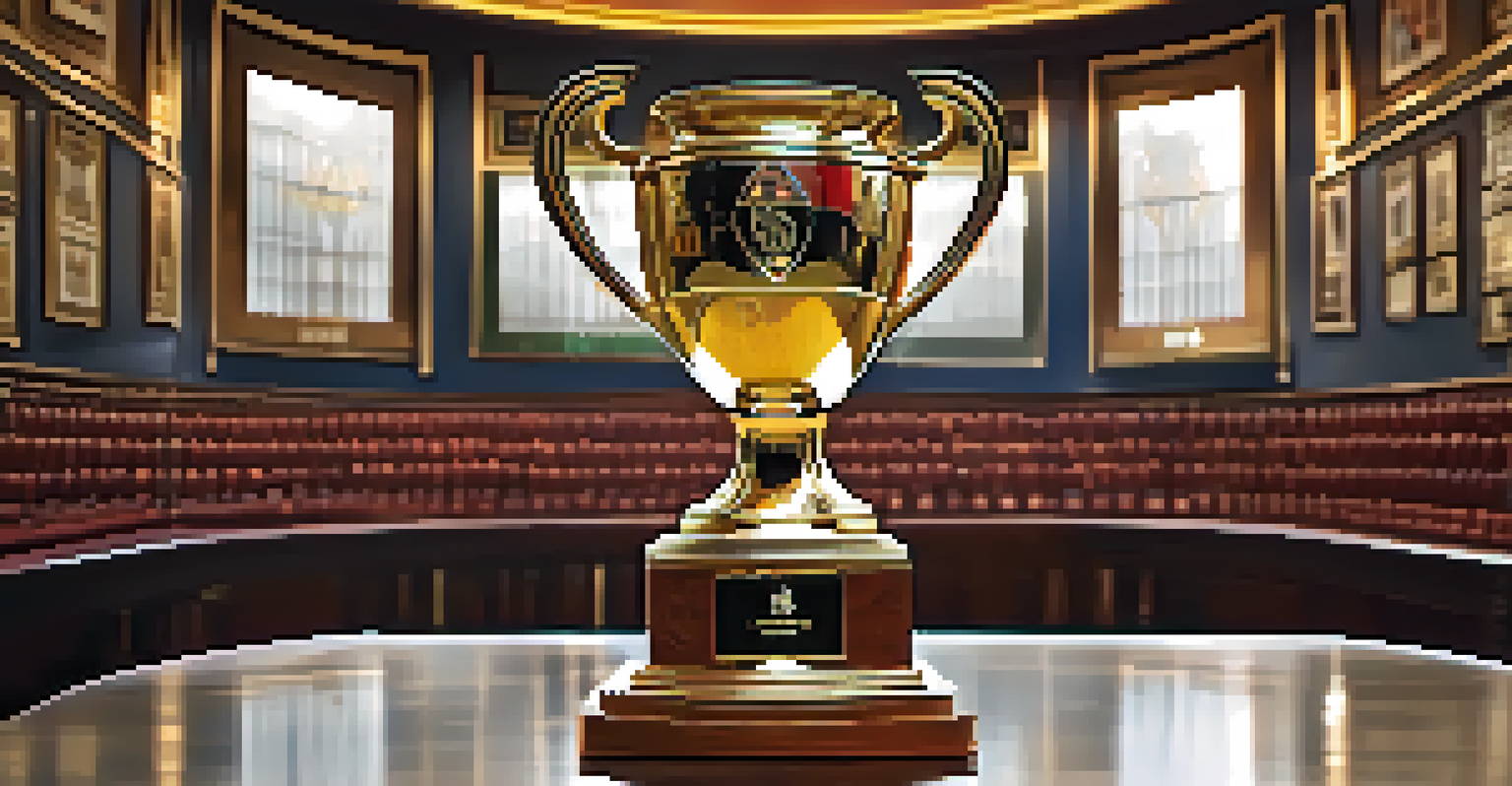Celebrating El Clásico: The Iconic Match of Spanish Football

The Origins of El Clásico: A Historical Overview
El Clásico, the legendary match between FC Barcelona and Real Madrid, dates back to 1902. It began as a friendly competition, but the stakes quickly grew as both clubs became powerhouses in Spanish football. This rivalry is not just a battle for points; it represents a cultural clash between Catalonia and Castile, making it a pivotal event in Spanish society.
El Clásico is not just a match; it's a cultural phenomenon that represents the heart and soul of Spain.
Over the decades, El Clásico has evolved, with each match steeped in history and emotion. From the early days of local pride to the global phenomenon it is today, the match has attracted millions of viewers worldwide. The passion fans have for their teams fuels the intensity of the rivalry, adding layers of significance to every encounter.
This deep-rooted history makes El Clásico more than just a football game; it's a celebration of identity, tradition, and the enduring spirit of competition that resonates throughout Spain.
The Players Who Defined El Clásico Through the Years
El Clásico has featured some of the most iconic footballers in history, each leaving their mark on the rivalry. From Alfredo Di Stéfano and Ferenc Puskás to Lionel Messi and Cristiano Ronaldo, these players have not only dazzled fans with their skills but have also added to the rich narrative of the matches. Their rivalry on the pitch has become a focal point for discussions about greatness in the sport.

The matches have often become a stage for these stars to showcase their talents, turning moments into legends. For instance, Messi's memorable last-minute goals and Ronaldo's stunning hat-tricks have become etched in the memories of fans. Each player's performance adds an exhilarating dimension to the rivalry, as fans eagerly anticipate these matchups.
El Clásico: A Cultural Phenomenon
The rivalry between FC Barcelona and Real Madrid transcends football, symbolizing a cultural clash between Catalonia and Castile.
As the game evolves, new talents are continually emerging, ensuring that El Clásico remains a captivating spectacle. The legacy of past legends inspires current and future players to rise to the occasion.
The Role of Fans in the El Clásico Experience
The atmosphere during El Clásico is electric, primarily thanks to the passionate fanbase of both clubs. Barcelona and Madrid supporters fill the stadiums with their chants, colors, and relentless energy. This fervor creates an unforgettable experience, transforming a simple match into a grand celebration of football culture.
Football is a game of moments, and in El Clásico, those moments can define legacies.
Fans often arrive hours before the kickoff, engaging in rituals that heighten the matchday excitement. Whether it’s sharing meals, singing songs, or wearing team jerseys, these traditions create a sense of community among supporters. The camaraderie and rivalry blend into an exhilarating tapestry of emotions that define the day.
Moreover, the rivalry extends beyond the stadium, with social media buzzing with commentary, memes, and predictions leading up to the match. The collective anticipation adds an extra layer of intensity to El Clásico, making it a cultural event that transcends football.
Memorable Moments That Shaped El Clásico's Legacy
Throughout its history, El Clásico has produced unforgettable moments that fans cherish. From stunning goals to controversial referee decisions, each match is filled with drama that keeps supporters on the edge of their seats. Iconic moments, like Ronaldinho's electrifying performance in 2005 or Messi's record-breaking goal-scoring feats, have become part of the match's lore.
These instances often define a player's legacy and can shift the narrative of the rivalry. When a player scores a crucial goal in El Clásico, it can solidify their status as a club legend. Such moments not only impact the immediate match but can also influence the broader context of the season and the clubs' standings.
Iconic Players Shape the Rivalry
Legendary footballers like Messi and Ronaldo have not only dazzled fans but also defined the narrative of El Clásico through their remarkable performances.
As fans reminisce about these highlights, they weave them into the fabric of their own experiences, creating personal connections to the matches. Each El Clásico is a new chapter in an ongoing saga filled with emotional highs and lows.
The Impact of El Clásico on Spanish Football Culture
El Clásico significantly impacts Spanish football culture, serving as a showcase of the country's best talent. The match not only highlights the skills of individual players but also reflects the tactical brilliance of the coaches. Strategies employed during these games often set the tone for the footballing landscape in Spain and beyond.
Moreover, El Clásico helps cultivate a sense of pride within the regions each team represents. For Catalans, it's a chance to assert their identity, while for Madridistas, it symbolizes the capital's dominance. This cultural significance extends to the way football is celebrated throughout Spain, influencing local clubs and inspiring future generations.
The match's global reach also plays a crucial role in elevating Spain’s status in the football world. It attracts international attention and viewership, turning El Clásico into a worldwide event that showcases the passion and skill of Spanish football.
The Evolution of Tactics in El Clásico Matches
Over the years, El Clásico has seen a transformation in tactics, reflecting changes in football philosophy. From the early days of straightforward formations to the complex strategies employed today, coaches have continually adapted their approaches. This tactical evolution has made the matches not just a display of skill but also a chess match of sorts, where every move is calculated.
For instance, the famous tiki-taka style employed by Barcelona under Pep Guardiola revolutionized the way teams approached possession and fluidity. On the other hand, Real Madrid has often focused on counter-attacking speed, utilizing the pace of their forwards to exploit defensive weaknesses. Such contrasting styles make for compelling encounters that keep fans guessing.
Fans Create an Unforgettable Atmosphere
The passionate support from fans enhances the El Clásico experience, turning each match into a grand celebration of football culture.
As the sport continues to evolve, so will the strategies employed in El Clásico. Coaches and players must remain innovative, ensuring that each match delivers fresh excitement and intrigue.
Looking Ahead: The Future of El Clásico
As we look to the future, El Clásico remains a vital part of football culture, with its allure unlikely to fade. The emergence of new talents and changing dynamics in both clubs ensure that anticipation remains high. Fans are eager to see how the rivalry will evolve, especially with the increasing influence of technology and analytics in the sport.
Moreover, the global reach of football means that El Clásico will continue to attract international interest, drawing new fans to the historic rivalry. This growing audience will further enrich the culture surrounding the match, blending traditions from various parts of the world.

Ultimately, El Clásico will continue to be more than just a match; it will be a celebration of football, culture, and the enduring spirit of competition that connects generations of fans.